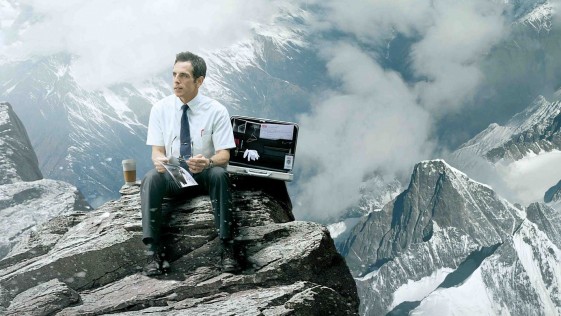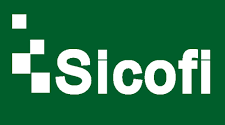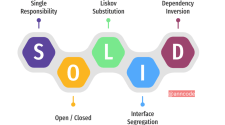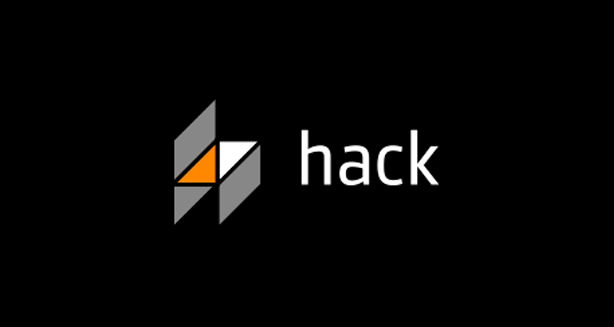1. How is my company ready to export or import?
We are going to answer you in the Galician way. Does your company have a bilingual receptionist? Can your production chain respond to high demand peaks? Do you have a sales team capable of facing the new challenge (travel, irregular schedules ...? Do you have the financial capacity to make the leap abroad? Do you have a competitive product or service? As an importer, are you looking for lasting agreements? But more important than this self-assessment is your commitment (as manager, owner or majority partner) with the decision to internationalize the company., an obsession that you must spread to the rest of the departments and staff. And this is true whether you decide to export or import products and services. That said, Carlos Nunes, general director of Globally Consulting, values the creation of an import / export department (outsourced or not), “that reports directly to the management, made up of people specialized in international trade, with knowledge of languages , skills to negotiate in different markets ”.
2. Alone or in company?
In foreign trade there are three phases that determine the consolidation of the business project in the destination market. The first is commercial sales operations abroad. For this, it is enough with a commercial intermediary who collects the merchandise in port and markets it. The second, is the cooperation with a local partner that takes care of the whole process? (We include consortia and joint venture here). The third is productive implementation, "a decision that few Spanish SMEs make," says Emilio Carmona.
Although there are brave exceptions, whether it is emerging markets or developing countries, the recommendation is to start the outdoor adventure accompanied.The work of a local partner will pave the way for you and avoid surprises. With a distributor or commercial agent you save the logistics structure, offices, personnel and transport. Remember that at the beginning, assessing the costs is a priority.
3. Include the visit to fairs in your agenda
Either as an exhibitor or as a visitor, they will allow you to know market conditions and make contacts with possible partners and suppliers. Yes indeed. Choose well. Focus on the sectorial and professionalized ones. It is a job that requires a lot of dedication at the beginning. You have to do what José María Cantatero, partner of Biodis (food supplements and vitamins), calls Lluvia de estrellas in reference to the television program. “On occasion, we have been to two fairs in a row. After dismantling the stand of the first, we have changed in the bathrooms of the airport on duty our jacket suits for comfortable clothes, to fly that night to another country, and start again the next day with the assembly of the stand of the second fair ", remember. Biodis exports to about 20 countries. You should add prospecting trips, trade missions, organized by ICEX and Chambers of Commerce to visiting the fairs.
4. What documentation is necessary?
Familiarize yourself with the following terms. They are part of the fundamental documentation in foreign operations.
- Commercial documents. It includes the commercial invoice, pro forma invoice, certificate of origin (processed by the Chambers of Commerce) and list of contents or parking list (description of the merchandise).
- Customs. They are the ATA and CPD Notebooks (they allow you to temporarily send merchandise to 75 countries); Single Administrative Document (DUA), processed by the Tax Agency; Intrastat (periodic declaration).
- Of transport. We are talking about the consignment note by road, rail, sea and air.
- Certificates. Includes insurance, health certificates, etc.
- Customs formalities. You will have to formalize the Registration in the Exporters Registry (form 036) and the VAT.
- 5. Don't get caught or how to choose a partner
The correct choice of a partner or supplier is a key factor in the process that you have started. Fairs are an excellent showcase to get in touch with them, but be wary of those who want to close a deal on site. Before signing anything, look for information about that potential partner or supplier: company size, production, talks with companies that have worked with him, his financial solvency (in the case of a partner) and meeting deadlines (supplier). Once the decision has been made, “it is essential that a relationship of trust and knowledge be created, both mutual and of the product or service offered and of the market. For the association to strengthen the company, making it more competitive, it is key that the chosen partner has a good network of contacts and the ability to expand it, as well as financial stability ”, advises Jesús Sáinz, president of PromoMadrid.
6. The dilemma of means of payment
Which to choose? The choice depends on the country, volume and trust with the client.For occasional and low-volume orders, the better bank transfer or money order; It can be simple or documentary, depending on whether or not the beneficiary requires the presentation of a supporting document. The expenses derived from bank commissions are assumed by each party. If you have full confidence in your client, do not hesitate, the international bank check It is the simplest, cheapest and most secure payment method. Other more complex means used in operations of a certain depth are the consignment and theletter of credit. The remittance can be simple simple or documentary. In the first, if you are the exporter, you will deliver the bill or promissory note to your client's bank so that it can proceed to manage its collection within the agreed period. The second allows you to maintain documentary control of the merchandise, since the bank will not deliver the commercial documentation to the client until the importer accepts the bill. In cases where the experience with the buyer is not good, ICEX recommends liquidating operations through documentary means of payment, “and when negotiating with importers the documents that must be presented, not accepting the requirement of documents that are very expensive or very difficult to obtain. You also have to be very rigorous in the correct issuance of documents and in meeting the deadlines for their presentation. " To ensure payment, other solutions go through the s export credit insurance, factoring (the exporting company assigns the invoices to a financial institution to manage their collection) and forfaiting (The exporter sells a payment document to a financial institution).
7. The importance of local customs and customs
There are not a few negotiations that have been ruined by not taking this aspect into account. Don't be the elephant that walks into the china shop! In Protocol in the international relations of the company and business, Carmen Cuadrado highlights the importance of knowing the local culture with this funny anecdote: “On one occasion, a European couple traveling with their puppy through an Asian country decided to enter eat at a typical restaurant in the area. They left the animal in custody and sat down to wait for the letter to be brought to them. But what would be his surprise when the waiter appeared with a succulent roast of meat and deposited it, smiling, in front of both diners. Its content? They were in a restaurant where it was customary for customers to come with their pet to be COOKED! ”.
Here we describe how to make little noise in the face to face with three interlocutors (Japanese, Chinese and Arabic) with protocols diametrically opposed to those of the West. In the case of Japanese, choose discreet clothes, discard jewelry and be punctual to the meeting; If when greeting you he chooses a Japanese bow, repeat it; take an interest in their culture; prepare your stomach for lunch and dinner ... and don't rule out ending up singing karaoke. With this busy social schedule, you will not close any agreement, but you will establish personal ties that will allow you to do it later. In the case of an interlocutor Chinese, never look at him for a long time, point your finger at him or cross your legs (it will be understood as rude). By the way, you will earn points if your business card is translated into their language. And in personal relationships, memorize the following expression: 'guanxi'. It is the barometer that measures the quantity and quality of personal contacts. Yes indeed. To strengthen it, a relationship of mutual trust must be built, which includes meals, visits and corporate gifts. And if your interlocutor is Arab, do not be surprised that the handshake lasts longer than usual. It is their custom. When it comes to dressing, choose suits in dark tones and if you are a woman, you will have to adapt your clothing to the country you visit. For example in Iran, Iraq and Saudi Arabia You will need to cover your arms, neck, and legs. In all cases, makeup and jewelry, in its proper measure. Also, do not cross your legs or give your left hand to an Arab (it is the impure one). Be punctual to appointments even when your interlocutor is not.
8. How can I protect my brand in international trade?
There are two ways to protect your invention. The PCT system or international application, with which, through a single document, you request protection of your invention in a total of 128 countries. The other way is European patent application, in which you designate those States in which you want the protection of your invention. The European patent application is processed by the European Office, but it can be delivered to the Spanish Patent and Trademark Office (www.oepm.es). You can present it in any of the official languages of the EU (English, French and German).
9. I need to translate the manual of my product, the patent, packaging…
You have several options: hire the services of a translation agency (physical or Internet) or go to freelance translators. Rates vary according to the type of translation (technical or not), the language combination (the most expensive is Spanish-Chinese and Spanish-Arabic), the number of characters / documents to be translated and the urgency. To give you an idea, the rate from Spanish to English or French is around 0.075 euros per word. Many translators, and especially agencies, will ask you for a minimum order (a document of no less than 300 words). In the cases of technical translations (patents, contracts and operating manuals ...), the translator will also request a glossary of specific terms for your business activity. For accounting purposes, translations are exempt from paying VAT. Do not forget to ask for several estimates, contract them, and remember that quality, as in everything, pays more.
10. By land, sea and air: logistics and transport aspects.
In import / export it is essential to understand how international transport and logistics aspects work. It is the highest investment item. There are three ways to send your merchandise to the destination market: transport by road, ship and plane. Each medium has associated costs that make it unique and perfect for depending on what type of shipment. If it is perishable products, do not hesitate: yours is the plane. The train is the best alternative for a direct and safe service of large volumes. It has two modes: combined transport (train + road) and full loads from origin to destination (for solid or liquid bulks, special products ...). The agents involved are the intermodal operator and Renfe. Road transport is the choice for intra-European destinations and small and medium volumes of goods. Its competitive asset is door-to-door shipping. For large volumes and distant destinations, the most economical option is maritime transport. The cargo goes in containers and the payment is called freight. In the event that you do not fill a container, you can make groupage and share the freight expenses with other exporters in the same situation. The agents involved are the shipping company, the freight forwarder, the consignee and the stevedoring company. Finally, point out that In international trade, the delivery conditions of the merchandise are defined through codes or Incoterms. In general, they determine the place and the form of delivery of the merchandise; the distribution between exporter and importer of the expenses related to the operations of transport, loading and unloading of the merchandise, insurance and customs, etc .; the transfer of the risks and responsibilities of loss or damage of the merchandise from the exporter to the importer; the documents, procedures and administrative procedures (obtaining licenses, certificates, transport documents) that are the responsibility of the exporter.
11. What variables determine the price of my product?
In a commercial offer to an international client, the description of the product, quantity, delivery conditions, delivery and payment, price and currency.Of all of them, the price has special relevance since it will determine the competitiveness of your product in the chosen market. How to calculate it? Take note. To the final sale price at destination (you can find out by visiting stores in the country or on B2B portals), you have to add the distribution margins (importer, distributor, retailer); transportation and insurance costs; customs duties and expenses (will include export clearance and import clearance, duties and any other taxes or fees imposed on the entry of imported products); financial expenses (commissions, currency exchange, etc); communication expenses (those related to market research, visits to fairs, advertising ...); trade margin and cost price.
Carlos Nunes, head of Globally, points out that “if the formula is through a local distributor and with delivery of the goods in our warehouse, the costs may not even vary or do very little depending on which of the parties makes the necessary adaptations to the market. destination (approvals, translations, certificates, labeling ...); additional services that may be required (maintenance, guarantees…) and other characteristics that, although not legally mandatory, are important for the image of our product (design, packaging, catalogs, additional information…) ”. One recommendation: if you want to start well in the market, do not put prices above your competition and do not start with discounts. According to the experts consulted, "creating a cheap product image at the beginning pays off in the long run."
12. I want to convert my website into a virtual store to export
The decision to go abroad using the Internet as a sales channel is more than advisable in these times. You save costs and eliminate intermediaries. Yes indeed. To transform your website into an export channel, the first thing is to review its structure. Make sure that it can support peak sales dates (ask your provider to simulate this assumption), that the platform is multi-language and multi-currency (you choose which one or which according to the target market or markets), that It has a payment gateway (the equivalent to the POS of any business), it is optimized for search engines, it allows a complete management of orders and customers (shopping cart), it has calculation of shipping costs and it has stock control. If you sell products, it is essential to make a detailed description and include a search engine. Nor can a section on purchase conditions be missing, with information on the price list, payment systems, shipping methods, warranty, returns and exchange, limitation of liability, data protection. And the fundamental thing: hiring the services of a transnational logistics and transport operator. Expert advice: “Selling only online in emerging markets is bound to fail (a more personal sale is necessary); not so in countries with a strong development of the Information Society. And just as if it were a physical sale, analyze your online competition ”.
13. SOS I need money for my import / export adventure. Who do I go to?
You will find specific lines for the internationalization of SMEs in ICO and ICEX loans, Cofides and multilateral organizations. There are them for almost all kinds of needs: from packages that subsidize the costs of attending trade fairs and prospecting trips to loans with advantageous conditions (low interest rate, repayment terms of 10 years and no grace period) to the financing of projects of deeper investment (acquisition of goods, purchase of companies ...). In these cases, the financing usually covers up to 80% of the necessary investment. Do not miss the opportunity to finance the ICO-ICEX Loans aimed at PIPE companies (Initiation Plan for Foreign Promotion).
14. When is a joint venture advisable
Provided that you have achieved a good knowledge of the target market and want to grow in it by sharing the investment with a local partner. Opting for a joint venture or joint venture is always cheaper than setting up your own subsidiary. The European Commission defines joint venture as "a company subject to the joint control of two or more companies that are economically independent of each other". The first advantage is economic, since you share the 50% incorporation expenses with the local partner: The second, strategic, because if you are thinking of forming a joint venture it will indicate that they are in the last step of internationalization: that of physical implementation in the market and that of alliances. Other reasons for setting up an international joint venture, according to ICEX, are: to reduce the period of introduction of a product in a foreign market, to acquire and / or transfer technology and / or know-how, as a requirement of business grouping for market access 'closed' exteriors, consolidate a distribution network in a foreign market, reduce economic costs for the development of a product, diversify risks, improve productive capacity, share knowledge and experience with other companies, achieve greater competitiveness or simply by benefiting from tax incentives. However, "the constitution of a joint venture implies a certain loss of independence and autonomy ", clarifies Emilio Carmona, head of the International Area of the Superior Council of Chambers. To face the investment of a joint venture, value specific financing instruments through ICOs or plans such as Europartenariat. BC-Net, Interprise, ECIP, IPE and JEV.
15. Unity is strength: export consortia
As Balbino Prieto points out, "one of the problems of Spanish companies is their small size, which makes their internationalization difficult". To the rescue of this 'uncomfortable reality', the export consortia and the UTE (Temporary Union of Companies) come out. Making the union their strength, consortia are revealed as a good alternative to compete in the international arena, since they allow the grouping of small companies with export objectives and common interests. Result: they gain market and reduce costs. How do they work? There are them to sell the products or to promote them. Requirements? They cannot be made up of less than three companies. From the legal point of view, they have their own personality and independent personnel from the companies that constitute them. A manager is usually in charge of each of them. Their tasks include taking part in promotional activities, conducting trade missions, visiting trade fairs, organizing customer visits, detecting business opportunities and placing orders. Most of the companies that choose to form consortia tend to belong to the food and beverage sector, and industrial material. The cost of a company that joins an export consortium is around 18,000 euros. The advantages are clear: they reduce cost, you are accompanied in the foreign adventure and the foreign customer's perception is that you are great. Some recommendations of the experts so that they work correctly are: "That the size of the companies is similar, that there is a complementarity of the products and that they share the same distribution channel in the destination market". More technical is the profile of the companies that join the Temporary Union of Companies (UTE). In this case, a greater investment is necessary (a company must be established), financial muscle and productive resources.
16. On behalf of subcontracting
Another way to internationalize your company is becoming a subcontractor for a large company or multinational. These, when they win a contract, carry out the works and maintenance through small and medium-sized companies. Engineering, automotive, telecommunications, new technologies and construction companies are the ones that use subcontracting the most to develop their international commitments. Indra, Telefónica, IBM, Endesa, ACS, Acciona, Técnicas Reunidas ... Go to the Purchasing departments, and ask them to include you in their list of supplier companies. The contractors form bags of companies to which they later claim their participation in the projects. The selection criteria go through quality standards similar to those of the contractor company, technological development and tight margins.
17. Conditions for bidding in international tenders
Are you a consolidated, flexible, specialized company with production capacity? If so, you fit the profile of companies that win international tenders and competitions. It is not an easy task. Wanting to join this select club implies an active search for information on projects and business opportunities. Tenders can be public or private. You will find the first ones published in the official gazettes, web pages of the Administration and the convening bodies. "Any interested legal person can participate and, generally, in addition to the company's own data, business records and other legal documents, historical antecedents must be attached that include production capacity, product modality, delivery times and various technical specifications, that allow the participant to qualify as a supplier, either for a specific business opportunity or permanent for a period of time ”, according to ICEX. You can also find competitions in the development bank programs and cooperation plans of the European Union. Yes indeed. "To participate in the bids, you have to forget about the protectionism of the State and go abroad knowing that the cards that will make you win the game are fundamentally the price and the quality offered", they remember from the ICEX. In the ranking of tenders, the United Nations stands out, one of the main buyers of products and services through its 36 agencies. In fact, each year it issues about 100,000 contracts and purchase orders. To access the world of tenders, you also have the support of ICEX and its Licita program, which is part of the Plan E for economic recovery.
18. Does conducting business abroad increase the tax burden?
Not. Precisely to avoid paying a tax twice, Spain has signed double taxation agreements with about 90 countries (www.meh.es). As Carlos Nunes acknowledges, “taxation has undergone changes to adapt the regulations to the trend towards internationalization of Spanish companies, so that the advantages that companies may have in international trade are not invalidated by a tax pressure other than The most appropriate". The CEO of Globally Consulting also warns that "as in the necessary requirements and licenses there is no single formula, neither can we simplify in taxation: it is essential to know the type of operation / investment and the State of origin and destination."
19. How to recover international VAT?
Visits to fairs, trade shows, sales ... If you carry out an operation with another company in the Member States of the European Union-25, you can claim a refund of input VAT. “Intra-community sales are exempt from VAT. The invoice is issued, with its correlative number and other necessary data, but VAT is not charged. Purchases are taxed at destination ", as indicated in the ICEX. The Chambers of Commerce have a processing service for these returns.
“The procedure has been facilitated with the introduction of electronic filing in the country of establishment. In Spain, the refund can be requested through the 360 form either quarterly or annually depending on the amount. In the event that there is no return or notification from the AEAT, the AEAT will send the request within 15 days of receipt to the State or States of return, which will communicate the date of receipt and has four months from that date to inform the applicant. the acceptance or rejection of the application ”, according to Carlos Nunes, who then explains the procedure for calculating VAT:
- Find the tax base of the import duty duties.
- Calculate the amount corresponding to customs duties and, where appropriate, special taxes, if the merchandise is subject to them.
- Calculate the taxable base of VAT on imports, consisting of the customs value of imported products.
- Once the customs value has been determined, add items not included in the tax base to it.
- Apply the respective rates to obtain the import VAT quota.
- VAT is paid before dispatching the merchandise (unless a guarantee or guarantee is delivered to the consignee).
- In addition, in the VAT form, in the VAT deductible section, there is a row for "VAT deductible for quotas paid on imports."
- 20. Exchange insurance, what are they and when to hire them?
One of the questions you should ask yourself in import / export operations is whether or not you assume the risk of currency exchange. To the aid of this monetary uncertainty, you have an exchange insurance contract. A highly recommended option in volume operations. How does this type of insurance work? You contract with your bank or savings bank a currency exchange rate at the signing of the contract (spot change) for the amount of the payment or collection of the operation that you will carry out in three months or a year (depending on the expiration date set with your client or supplier) .Technically it is not insurance but a forex trading operation. The advantage is that by knowing what you are going to pay in the future, you better control your treasury. You can also insure only a part of the total operation. You will recognize these types of contracts because they are headed with the title Foreign exchange forward sale contract. And do not forget that the maximum legal term to carry out the coverage is one year, that the exchange insurance quotes are approximately equivalent to the difference in interest rates of the currencies and that you can take out exchange insurance at any time prior to the expiration of the payment. /pay.
Fountain:
http://www.emprendedores.es/















No Comment